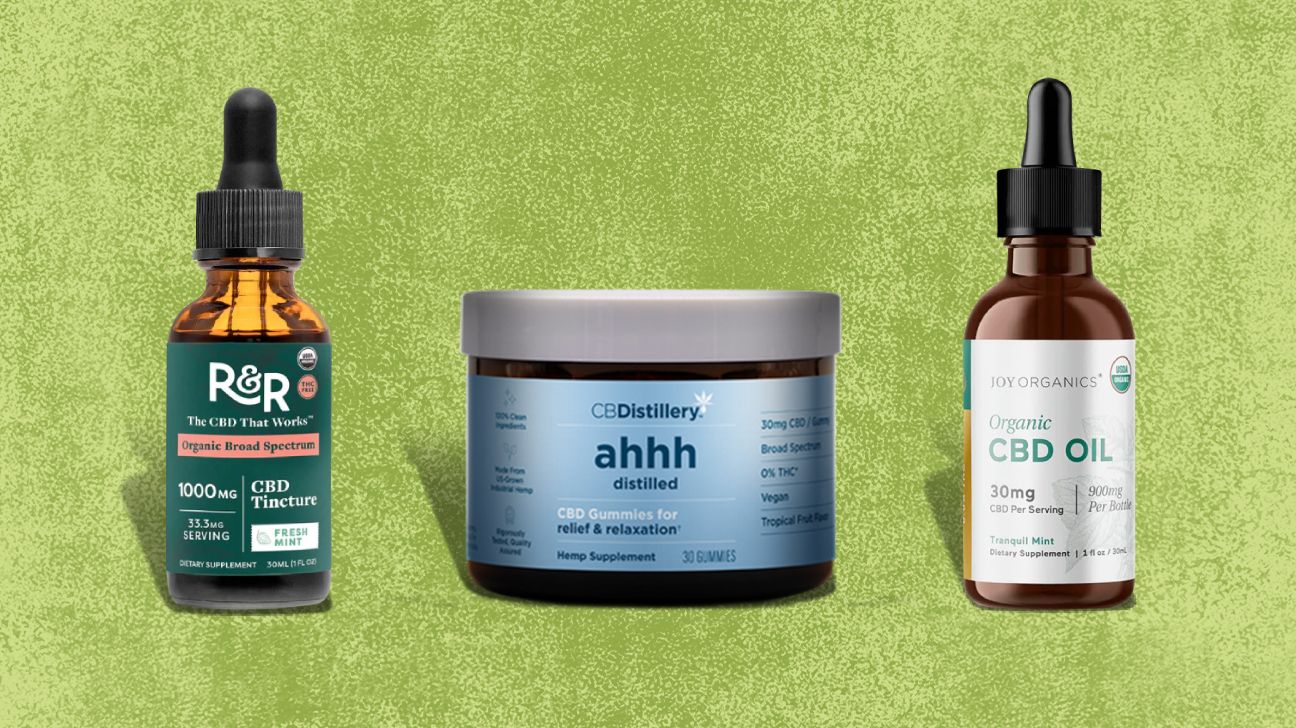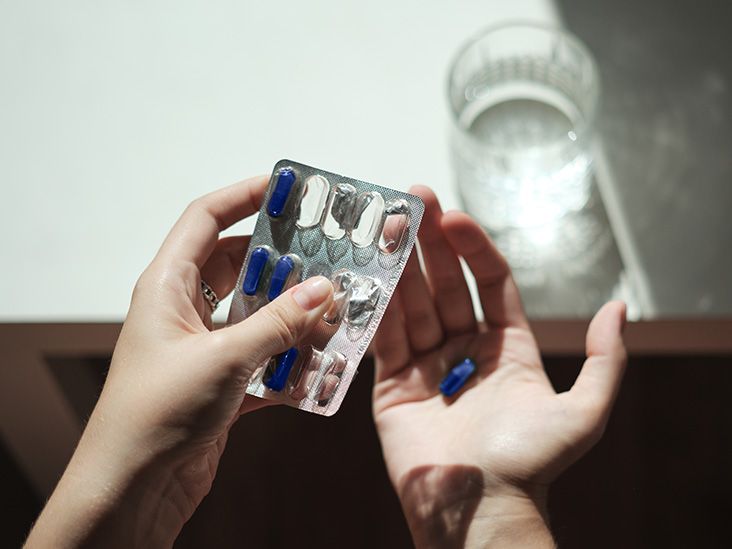One of the main forms of cannabidiol (CBD) is broad-spectrum CBD. It contains a range of natural compounds from the cannabis plant, but does not contain THC. We chose five of the best products, vetted by our experts.
Broad-spectrum CBD products contain various compounds and cannabinoids from the cannabis plant. These include cannabichromene, cannabinol, and terpenes, such as myrcene, limonene, or pinene.
Broad-spectrum CBD typically contains no THC. However, some products will have trace quantities.
There are several ways to extract CBD from the cannabis plant. These include:
- steam distillation
- solvent extraction
- carbon dioxide extraction
- lipid extraction
The strain of the cannabis plant, its classification, and the extraction process may affect CBD’s composition.
Broad-spectrum CBD falls somewhere between full-spectrum CBD and CBD isolate. Although broad-spectrum CBD contains multiple compounds, it does not typically contain THC.
The following table compares the products in this article on key features:
| Form | CBD amount | Size | CBD dosage per serving | Price | |
|---|---|---|---|---|---|
| Joy Organics | oil | 450 mg to 2,250 mg | 30 mL | 15 mg to 75 mg | from $44.95 |
| CBDistillery | gummies | 900 mg | 30 gummies | 30 mg per gummy | $65 |
| CBDfx | oil | 500 mg | 200 mL | no information | $44.99 |
| R&R | oil | 1,000 mg | 30 mL | 33.3 mg | $55 |
| Sunmed | gummies | 750 mg | 30 gummies | 25 mg per gummy | $60 |
Medical News Today chooses broad-spectrum CBD products based on criteria we think are good indicators of safety, quality, and transparency.
As a part of our vetting process, we consider:
- the product’s composition, ingredients, and overall quality
- any third-party certifications
- the company’s reputation and business practices
- any lab test results
- marketing claims
Medical News Today follows a strict product selection and vetting process. Learn more here.
How people use broad-spectrum CBD will depend on the form they take.
People can take broad-spectrum CBD by mouth if they choose CBD gummies or oils. People typically place one or two drops of oil under their tongue and let it absorb for around 30 seconds before swallowing.
If a person chooses a topical broad-spectrum product such as a balm, cream, or lotion, they should massage the product into their skin, avoiding sensitive areas or broken or irritated skin.
People should start with a low dose and work up until they get their desired effect. However, they should never exceed the recommended dose on the product packaging.
Unlike CBD isolate, which contains only pure CBD, broad-spectrum CBD products may produce heightened effects because they have additional compounds that work together.
Broad-spectrum CBD does not typically contain THC, meaning it will not produce any unwanted “high” feeling.
Although there are some relatively recent studies about the entourage effect, there is currently minimal research on the individual types of CBD or which type may benefit a particular health condition.
An individual may wish to use CBD due to anecdotal evidence of its benefits for anxiety, depression, pain reduction, acne, and heart problems. CBD may also help with relaxation, so people may use it when they feel stressed or experience sleep disturbances.
Learn more about the benefits of CBD.
Below is a breakdown of some potential advantages of each form of CBD. None of these types of CBD is necessarily better than the other.
CBD isolate
This form of CBD:
- is a pure form
- does not contain THC
- does not contain any other cannabinoids, terpenes, or other plant compounds
- does not have an odor or taste
Some people believe that CBD isolate is the safest to use, as it is pure, but it is a highly processed product. Also, because it does not contain any other potentially beneficial compounds, it may not offer all the health benefits of full- and broad-spectrum CBD.
A 2015 study suggests people may have to take much higher doses of CBD isolate to get pain relief than they would with other forms of CBD.
Full-spectrum CBD
This form of CBD:
- may produce more benefits because of the entourage effect
- is not as refined as CBD isolate
- contains up to 0.3% THC in dry-weight form
Full-spectrum CBD products contain all the compounds from a cannabis plant, including low doses of THC. This means that the entourage effect is strongest in full-spectrum CBD products. It is also the most natural form of CBD because it undergoes the least processing.
While full-spectrum products contain THC, the Food and Drug Administration (FDA) stipulates that they must not contain more than
Learn about full-spectrum CBD vs. CBD isolate.
Broad-spectrum CBD
This form of CBD contains other cannabinoids and terpenes alongside CBD, so it may produce the entourage effect. It contains trace amounts of THC.
The entourage effect caused by these compounds working together
Learn about broad-spectrum vs. full-spectrum CBD.
Some companies use the terms “oil” and “tincture” interchangeably. However, they are not the same. The main difference lies in manufacturing and how producers extract CBD.
Manufacturers produce a CBD tincture by soaking cannabis in alcohol, allowing them to infuse. Slowly heating the solution removes the alcohol, resulting in a CBD-infused liquid.
Before purchasing a CBD product, individuals should always read the product labels.
However, the FDA does not regulate many terms for CBD products. A THC-free product, for instance, may still contain traces of the compound. Reading labels can help avoid any misunderstandings and adverse effects.
Read our complete buyer’s guide to CBD.
A person may choose a broad-spectrum CBD product based on several factors:
- Use: Topical products such as balms and salves may be best for muscle pain, while ingestible products such as gummies may be more appropriate to improve sleep quality.
- Strength: Strength is based on the amount of CBD in the product, measured in milligrams (mg). The general rule of thumb is to start with the lowest possible dosage of CBD and increase it until reaching the desired effect. A person should avoid using a product that does not state the dosage per serving on the packaging.
- Hemp source: Some people may wish to consider the environmental impact of sourcing hemp. Some brands do source hemp responsibly. Not all hemp is grown in the United States, so it may need to be imported.
- THC-content: People avoiding THC should avoid using CBD products that contain THC.
Anecdotal evidence suggests many people tolerate CBD well, but it can have
It is best to speak with a healthcare professional before trying CBD, particularly if the aim is to help with pain, lack of sleep, or another health-related issue.
Broad-spectrum CBD refers to CBD that contains little to no traces of THC, which is the compound in the cannabis plant that people associate with the feeling. According to the World Health Organization, people usually tolerate CBD well, and it has a good safety profile.
Other types of CBD, such as isolate and full-spectrum CBD, will contain differing amounts of THC.
A side effect of using CBD is drowsiness and fatigue, so it is possible that people will feel tired when using broad-spectrum CBD. Some people may prefer to use broad-spectrum.
CBD at night to help them sleepu003c/au003e if it does cause tiredness.
Yes, broad-spectrum CBD oil is legal.rnrnCBD in the United States is legal so long as it contain less than 0.3% THC. Broad-spectrum CBD should contain no, or trace amounts, of THC.
Broad-spectrum CBD may be more expensive than full-spectrum CBD as manufacturers have to extract the THC while keeping in all the other cannabinoids, terpenes, and flavonoids.
Broad-spectrum CBD contains various compounds that may hold additional health benefits in comparison to CBD isolate. The compounds may help relieve pain, improve skin health, reduce anxiety, and help with sleep.
There are minor differences, and the right choice depends on a person’s preference.
One study found that full-spectrum CBD may ease pain due to the combined effects of CBD and THC.
As broad-spectrum CBD also contains additional compounds, it may have effects similar to those of full-spectrum CBD. However, broad-spectrum products typically have less or no THC, usually 0.3% or less.
CBD isolate is CBD in its purest form, with no other cannabinoids.
These products may best suit people trying a CBD product for the first time. Isolate contains no other hemp extracts that could potentially alter its effects.
Broad-spectrum CBD may not produce a positive drug test result because it typically does not contain THC.
Broad-spectrum CBD products contain other cannabinoids but only trace amounts of THC, if any. These products may have more pronounced effects than products with CBD isolate.
It is important to remember that research into the effects of broad-spectrum CBD is still emerging.
Is CBD legal? Hemp-derived CBD products with less than 0.3% THC are legal federally but still illegal under some state laws. Marijuana-derived CBD products, on the other hand, are illegal federally but legal under some state laws. Check local legislation, especially when traveling. Also, keep in mind that the Food and Drug Administration (FDA) has not approved nonprescription CBD products, which may be inaccurately labeled.



